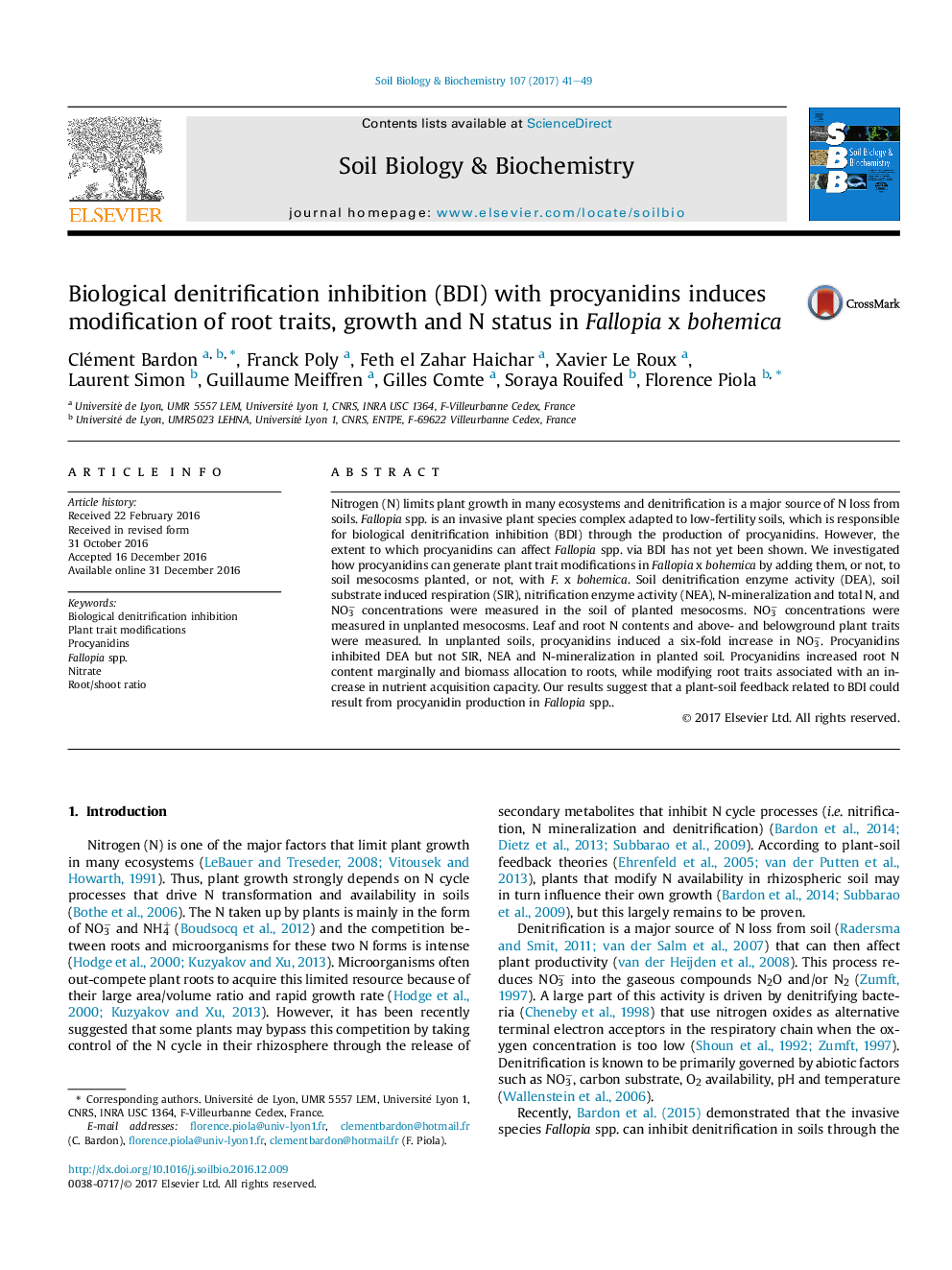| Article ID | Journal | Published Year | Pages | File Type |
|---|---|---|---|---|
| 5516412 | Soil Biology and Biochemistry | 2017 | 9 Pages |
â¢The effects of procyanidin addition to soil planted or not with Fallopia spp were studied.â¢Adding procyanidins to bare soil increased NO3â availability.â¢Procyanidins reduced denitrifying enzyme activity in soils with Fallopia spp.â¢The addition of procyanidins induced modifications of Fallopia root traits.â¢Root trait modifications may be due to biological denitrification inhibition.
Nitrogen (N) limits plant growth in many ecosystems and denitrification is a major source of N loss from soils. Fallopia spp. is an invasive plant species complex adapted to low-fertility soils, which is responsible for biological denitrification inhibition (BDI) through the production of procyanidins. However, the extent to which procyanidins can affect Fallopia spp. via BDI has not yet been shown. We investigated how procyanidins can generate plant trait modifications in Fallopia x bohemica by adding them, or not, to soil mesocosms planted, or not, with F. x bohemica. Soil denitrification enzyme activity (DEA), soil substrate induced respiration (SIR), nitrification enzyme activity (NEA), N-mineralization and total N, and NO3â concentrations were measured in the soil of planted mesocosms. NO3â concentrations were measured in unplanted mesocosms. Leaf and root N contents and above- and belowground plant traits were measured. In unplanted soils, procyanidins induced a six-fold increase in NO3â. Procyanidins inhibited DEA but not SIR, NEA and N-mineralization in planted soil. Procyanidins increased root N content marginally and biomass allocation to roots, while modifying root traits associated with an increase in nutrient acquisition capacity. Our results suggest that a plant-soil feedback related to BDI could result from procyanidin production in Fallopia spp..
